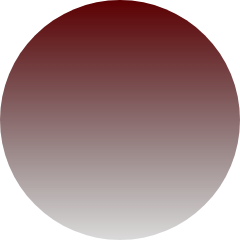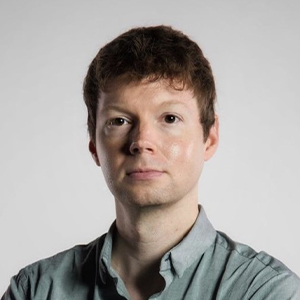Conference Schedule
Sunday, Oct 27, 2024 |
||
|---|---|---|
| 3:00 p.m. – 6:00 p.m. | Registration Desk Open | |
| 6:30 p.m. – 8:30 p.m | Conference Opening and Welcome Reception | |
Monday, Oct 28, 2024 – Full Day Main Room |
||
|---|---|---|
| TIME | SUBJECT | SPEAKER |
| 8:00 a.m. | Doors Open | |
| 8:30 a.m. – 8:35 a.m. | Welcome Address | |
| 8:40 a.m – 8:55 a.m. | Honoring Ron Tye | |
| 9:00 a.m – 9:40 a.m. | Plenary Lecture: Thermal Radiation Effects in Materials |
David Clarke, PhD Professor at Harvard School of Engineering, Harvard University |
| 9:45 a.m – 10:00 a.m. | Errors in non-ideal ASTM D5470 measurements of Type I materials | Andres Becerra R&D Scientist Dow Inc. |
| 10:05 a.m – 10:20 a.m. | Investigations for experimental parameters of thermal conductivity measurements of expanded polystyrene boards using a heat flow meter and transient plane source apparatuses | Jae Hyun Kim Engineer National Institute of Standards and Technology |
| 10:25 a.m – 10:40 a.m. | Low-Temperature CDW of α-U Crystals Probed by High-Resolution Dilatometry | Volodymyr Buturlim Glenn T. Seaborg Institute, Idaho National Laboratory |
| 10:45 a.m – 11:10 a.m. | Break | |
| 11:15 a.m. – 11:30 a.m. | Hot Disk Thermal Conductivity Measurements of Insulation and SRM 1450b | Artem Trofimov Senior Application Scientist The Edward Orton Jr. Ceramic Foundation |
| 11:35 a.m. – 11:50 a.m. | Measuring the In-plane Thermal Conductivity of Pyrolytic Graphite Sheets using the Transient Plane Source Method | Genesis Infante Materials Scientist C-Therm Technologies |
| 11:55 a.m. – 12:10 p.m. | Special Presentation | Artem Trofimov Senior Application Scientist The Edward Orton Jr. Ceramic Foundation |
| 12:15 p.m. | Extra | |
| 12:20 p.m. – 1:15 p.m. | Lunch | |
| 1:20 p.m. – 2:00 p.m. | Plenary Lecture: Beam Deflection Methods and Their Application to Polymers and Fast Mapping of Thermal Conductivity and Interface Conductance |
David G. Cahill, Phd Materials Research Laboratory University of Illinois |
| 2:05 p.m. – 2:20 p.m. | Unveiling the Theory of Thermal Conductivity: Insights into Phonons and Heat Transfer Mechanisms | Lucas Lindsay, PhD Research Scientist Oak Ridge National Laboratory |
| 2:25 p.m. – 2:40 p.m. | More Accurate Analytical Solution for the Modified Transient Plain Source Method | Akhan Tleoubaev |
| 2:45 p.m. – 3:00 p.m. | Thermal conductivity measurements of thermal energy storage materials | Daniel Lager Research Engineer AIT Austrian Institute of Technology GmbH |
| 3:05 p.m. – 3:30 p.m. | Break | |
| 3:35 p.m. – 3:50 p.m. | Thermophysical properties of fluids – care, collecting, and connecting | Tina Adams Senior Research Chemist Lubrizol |
| 3:55 p.m. – 4:10 p.m. | Very Low Thermal Conductivity in Thermoelectric Pseudo-Hollandite Chalcogenides | Hugo Bouteiller Oak Ridge National Laboratory |
| 4:15 p.m – 4:30 p.m. | Study of heat conduction in human skin irradiated with a dedicated laser for heating gold nanoparticles for cancer photothermoablation | Marta Cecotka Gdańsk University of Technology |
| 4:35 p.m. – 4:50 p.m. | Method for determination of thermal conductivity of open and closed cell materials at cryogenic temperatures | Ingo Stark Research Scientist PMIC |
| 4:55 p.m. | Extra | |
Monday, Oct 28, 2024 – Half Day Auxiliary |
||
|---|---|---|
| TIME | SUBJECT | SPEAKER |
| 2:05 p.m. – 2:20 p.m. | Thermal investigation of highly mismatched semiconductor alloy PIN diodes | Andrew Jones Laser Thermal |
| 2:25 p.m. – 2:40 p.m. | Extra | |
| 2:45 p.m. – 3:00 p.m | Extra | |
| 3:00 p.m. – 3:30 p.m. | Break | |
| 3:35 p.m. – 3:50 p.m. | Characterizing the Anisotropic Thermal Properties in Irradiated 2D hexagonal-Boron Nitride (h-BN) Flakes | Md Nazmun Sadat Khan University of Virginia |
| 3:55 p.m. – 4:10 p.m. | Investigating size effects atf the thermal conductivity plateau of amorphous silica | William Hutchins Graduate Researcher University of Virginia |
| 4:15 p.m. | Extra | |
| 5:00 p.m. – 6:00 p.m. | Board Meeting | |
Tuesday, Oct 29, 2024 – Full day Main Room |
||
|---|---|---|
| TIME | SUBJECT | SPEAKER |
| 8:00 a.m. | Doors Open | |
| 8:30 a.m. – 9:10 a.m. | Plenary Lecture: Development of Thermal Conductivity Reference Materials |
Joshua Martin, PhD Research Physicist National Institute of Standards and Technology |
| 9:15 a.m. – 9:35 a.m. | Introduction to Workshop | |
| 9:40 a.m. – 10:00 a.m. | Workshop: Time Domain Thermoreflectance: Tips, Tricks, and a few Extensions |
Brian Donovan Associate Professor The United States Naval Academy |
| 10:05 a.m. – 10:25 a.m. | Workshop: Frequency Domain Thermoreflectance (FDTR) Instrumentation: Common Challenges and Practical Guidance |
Dylan Kirsch Materials Research Engineer National Institute of Standards and Technology |
| 10:30 a.m. – 10:50 a.m. | Workshop: A Practical Guide to Steady-State Thermoreflectance |
Jeffrey Braun Vice President of Strategy and Programs Laser Thermal |
| 10:55 a.m. – 11:20 a.m. | Break | |
| 11:25 a.m. – 11:45 a.m. | Workshop: Arbitrary geometries and confined transducers |
Ron Warzoha Associate Professor, Mechanical Engineering United States Naval Academy |
| 11:50 a.m. – 12:10 p.m. | Workshop: Advanced measurement configurations: TR-MOKE |
Xiaojia “XJ” Wang Associate Professor University of Minnesota |
| 12:15 p.m. – 12:20 p.m. | Workshop Extra | |
| 12:25 p.m. – 1:20 p.m. | Lunch | |
| 1:25 p.m. – 1:40 p.m. | Thermal Transport in Materials with Dynamic Conformational Disorder | Rahil Ukani Graduate Student Researcher Harvard Unviersity |
| 1:45 p.m. – 2:00 p.m. | Exploring Plasma-Induced Non-Equilbrium in Thin Gold Films | Daniel Hirt Graduate Research Assistant University of Virginia |
| 2:05 p.m. – 2:20 p.m. | Phonon heat transport in ion beam modified Ga2O3 thin films. | Azat Abdullaev Postdoctoral Researcher National Laboratory Astana, Nazarbayev University |
| 2:25 p.m. – 2:40 p.m. | Considerations in the measurement of high thermal conductivity materials with steady-state thermoreflectance | Ethan Scott University of Virginia |
| 2:45 p.m. – 3:00 p.m. | Nano- and micro-scale phonon-mediated thermal transport in swift heavy ion irradiated crystalline insulators | Azat Abdullaev Postdoctoral Researcher National Laboratory Astana, Nazarbayev University |
| 3:05 p.m. – 3:30 p.m. | Break | |
| 3:35 p.m. – 3:50 p.m. | Thermal and Optical Properties of Rare Earth Oxides for Thermal Barrier Coatings | Saman Zare Postdoctoral Research Associate University of Virginia |
| 3:55 p.m. – 4:10 p.m. | Thermo-Optical Plane Source technique for Thermal Conductivity Measurement | Jeffrey Braun Vice President of Strategy and Programs Laser Thermal |
| 4:15 p.m. – 4:30 p.m. | Instrumentation for Thin Film Thermal Conductivity Measurements | Heng Wang Senior Sales and Application Manager Linseis Inc. |
| 6:00 p.m. – 7:30 p.m. | Banquet | |
Tuesday, Oct 29, 2024 – Full day Auxiliary |
||
|---|---|---|
| TIME | SUBJECT | SPEAKER |
| 8:00 a.m. | Doors Open | |
| 9:15 a.m. – 9:30 a.m. | Non-Contact Method for Measuring Thermal Conductivity and Melting Point: A Comparative Study of Thermal Properties in SS316L Samples Fabricated via Additive Manufacturing and Machining | Jessica Reyes University of Virginia |
| 9:35 a.m. – 9:50 a.m. | Novel contactless measurement technique to determine the thermal conductivity and spectral emissivity of materials at ultra-high temperatures (>2000 °C) | Hunter Schonfeld University of Virginia |
| 9:55 a.m. – 10:10 a.m. | The Use of Light Emitting Diodes (LED) in Thermal Diffusivity Testing by the Flash Method | Peter Gaal Arrigo Enterprises, LLC |
| 10:15 a.m. – 10:30 a.m. | Using Photothermal Radiometry and Lock-in Thermography to Rapidly Screening Thermal Property and Characterizing Microstructure of Advanced and Additive Manufacturing Components | Zilong Hua Idaho National Laboratory |
| 10:35 a.m. – 10:50 a.m. | Detecting Thermal Heterogeneity Using a Two-Sensor Technique | Renzo Flores Physicist Forsta Varme |
| 10:55 a.m. – 11:20 a.m. | Break | |
| 11:25 a.m. – 11:40 a.m. | Measurement of Layered Samples Using the Transient Plane Source | David Landry Thermophysics Research Manager Thermtest |
| 11:45 a.m. – 12:00 p.m. | TBD | |
| 12:05 p.m. – 12:20 p.m. | TBD | |
| 12:25 p.m. – 1:20 p.m. | Lunch | |
| 1:25 p.m. – 1:40 p.m. | Measurements of electron and phonon transport and scattering in ferroelectric thin films using ultrafast and infrared spectroscopy | Sara Makarem Graduate Research Assistant University of Virginia |
| 1:45 p.m. – 2:00 p.m. | Characterization of Thermal and Mechanical Properties of Plasma-Based Aluminum Fluoride Layers | Mohsen Motezaker University of Virginia |
| 2:05 p.m. – 2:20 p.m. | In-plane Thermal Conductivity Measurements in Reticular Organic Films: Challenges and Perspectives | Ramya Mohan Postdoctoral Research Associate University of Virginia |
| 2:25 p.m. – 2:40 p.m. | High throughput nanoimaging of thermal conductivity and interfacial thermal conductance with AFM probes | Andrea Centrone Project Leader National Institute of Standards and Technology |
| 2:45 p.m. – 3:00 p.m. | Theoretical investigations of the photothermal effect and energy conversion for metallic nanostructures deposited on insulated materials | Piotr Radomski Faculty of Mechanical Engineering and Ship Technology Gdańsk University of Technology |
| 3:05 p.m. – 3:30 p.m. | Break | |
| 3:35 a.m. – 3:50 p.m. | Material Relocation Test Study of Pellet to Cladding Interaction in Fast Reactor Design | Yan Peng China Institute of Atomic Energy |
| 3:55 p.m. – 4:10 p.m. | ASTM INTERNATIONAL: Helping our world work better | Stephen Mawn Director, Technical Committee Operations ASTM International |
| 4:15 p.m. | Extra | |
| 4:30 p.m. – 5:45 p.m | ASTM E37.05 Meeting | |
| 6:00 p.m. – 7:30 p.m. | Banquet | |
Wednesday, Oct 30, 2024 – Half day |
||
|---|---|---|
| TIME | SUBJECT | SPEAKER |
| 8:00 a.m. | Doors Open | |
| 8:30 a.m. – 8:45 a.m. | Thermal Conductivity of Materials in the Radioisotope Thermoelectric Generators (RTGs) | Hsin Wang, PhD Research Scientist Oak Ridge National Laboratory |
| 8:50 a.m. – 9:05 a.m. | Thermal Conductivity, Melting Temperature and High-Temperature Emissivity of Rare-Earth Silicate Environmental Barrier Coatings | Milena Milich University of Virginia |
| 9:10 a.m. – 9:25 a.m. | Investigating Thermal and Optical Properties in Rare Earth Zirconates for Radiative Barrier Coatings | William Riffe Graduate Research Assistant University of Virginia |
| 9:30 a.m. – 9:45 a.m. | Thermal diffusivity and conductivity of a flexible thermal protection system (FTPS) | Erhard Kaschnitz Österreichisches Gießerei-Institut |
| 9:50 a.m. – 10:05 a.m. | Ballistic Thermal Transport in TiN/TiC Multilayers due to Interfacial Elastic Modulus Enhancement | Md Rafiqul Islam University of Virginia |
| 10:10 a.m. – 10:25 a.m. | Beyond Bulk: Delving into the Vibrational World of Nanodiamonds and Nanocomposite Materials | Caleb Stamper University of Wollongong |
| 10:30 a.m. – 10:45 a.m. | Transport properties and microstructural evolution of Bi-Cu-Te ternary alloys | Ayansa Tolesa Jimma University |
| 10:50 a.m. – 11:15 a.m. | Break | |
| 11:20 a.m. – 11:35 a.m. | Closing Address | |


Workshops

Joshua Martin, PhD
Research Physicist
Thermoreflectance Instrumentation and Methods
Thermoreflectance instruments are generally home-built; they can be difficult to construct, align, and maintain, especially for the novice. The goal of this workshop is to provide practical advice from a pool of institutional knowledge beyond theory. Speakers will share their insights and tips for optimizing thermoreflectance instrument design, methods, and data analysis. Topics will include common measurement techniques (TDTR, FDTR, SSTR), TR-MOKE, and advanced measurement configurations and applications.
Duration: Half-day
Ron Warzoha
Associate Professor, Mechanical Engineering
Arbitrary Geometries and Confined Transducers
In this talk, I will discuss the integration of a numerical, least-squares fitting routine into conventional frequency-domain thermoreflectance (FDTR) measurements to extract the thermal properties of materials and the thermal boundary conductance across interfaces in samples with complex geometric features. The goal of this work is to demonstrate the utility of FDTR for (1) measuring the thermal properties of materials in-situ (i.e., in actual device architectures) and (2) improving the sensitivity of the technique to so-called “buried” interfaces. Critical insights into measurement sensitivity and uncertainty will be discussed, as well as practical limitations associated with such experiments. The presentation will end with a discussion of challenges associated with these measurements and the need for further refinement in future work.


